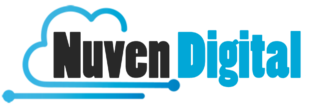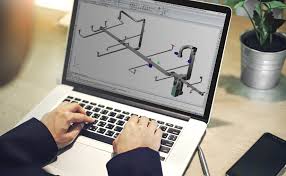HVAC software, or heating, ventilation, and air conditioning software, is the most advanced type of home automation. Heating and cooling are not controlled by one central unit but by many. Each room could have its thermostat linked to a device that measures the temperature in that room and controls the air conditioner or heater accordingly.
To control each of these devices separately, HVAC systems use software to manage them. The software links all thermostats on the same network and can then be accessed remotely through a computer or smartphone. HVAC systems can also access information from other home systems, such as security or lighting systems, to provide a more holistic experience that saves energy or reduces your monthly costs. Various HVAC programs are available, some designed for advanced home automation while others are marketed simply as home management or monitoring systems with added features.
Here are reasons why HVAC software stands out.
Help to streamline operations:HVAC Software helps to streamline operations by efficiently controlling all HVAC system components. The software program can be configured to send alerts when there are problems with any system component. This ensures that any issues will be addressed quickly and efficiently to prevent costly downtime.
Promote digital invoicing: Digital invoicing is one of the key advantages of using an HVAC software solution. Digital invoicing allows you to manage and track your invoices easily. You can even automate your invoicing by setting up recurring payments with your clients. This will prevent you from contacting clients about their past-due invoices, making tracking your money easier.
Manage clients, employees, and jobs:HVAC software allows users to manage their employees, clients, and jobs from one centralized location, saving time and money when managing your business. You’ll never have to search through emails or call clients back because you forgot an appointment again.
Payroll integration:You can do various things with your installation company’s payroll software and an HVAC service company’s installation software. You can integrate the two programs, so you don’t have to manually enter the same data into each program. Paying your employees can also be easier if you use one integrated program instead of two separate programs.
Customer support: HVAC companies are expected to be available 24 hours a day, seven days a week, 365 days a year. With HVAC software, technicians can log in whenever they like and immediately get the answers they need. The software will also send them reminders, so they don’t have to worry about missing anything important.
Scheduling: HVAC companies are often busy when it’s hot outside in the summer, and everyone uses their air conditioning systems. HVAC software can help manage scheduling by allowing technicians to schedule appointments online or on their phones as soon as the customer contacts them for service.
Key Takeaway
HVAC software is a type of monitoring software that tracks and controls all the critical components in your heating and cooling system. HVAC systems are complex and consist of multiple subsystems, including heating, ventilation, air conditioning (HVAC), humidification, dehumidification, ventilators, and other equipment. To keep track of what’s going on in your system, especially for large spaces like malls or large buildings, requires technology that can monitor every device and process happening across your HVAC network. That’s why many HVAC companies choose to use real-time monitoring software during service calls or scheduled maintenance.


